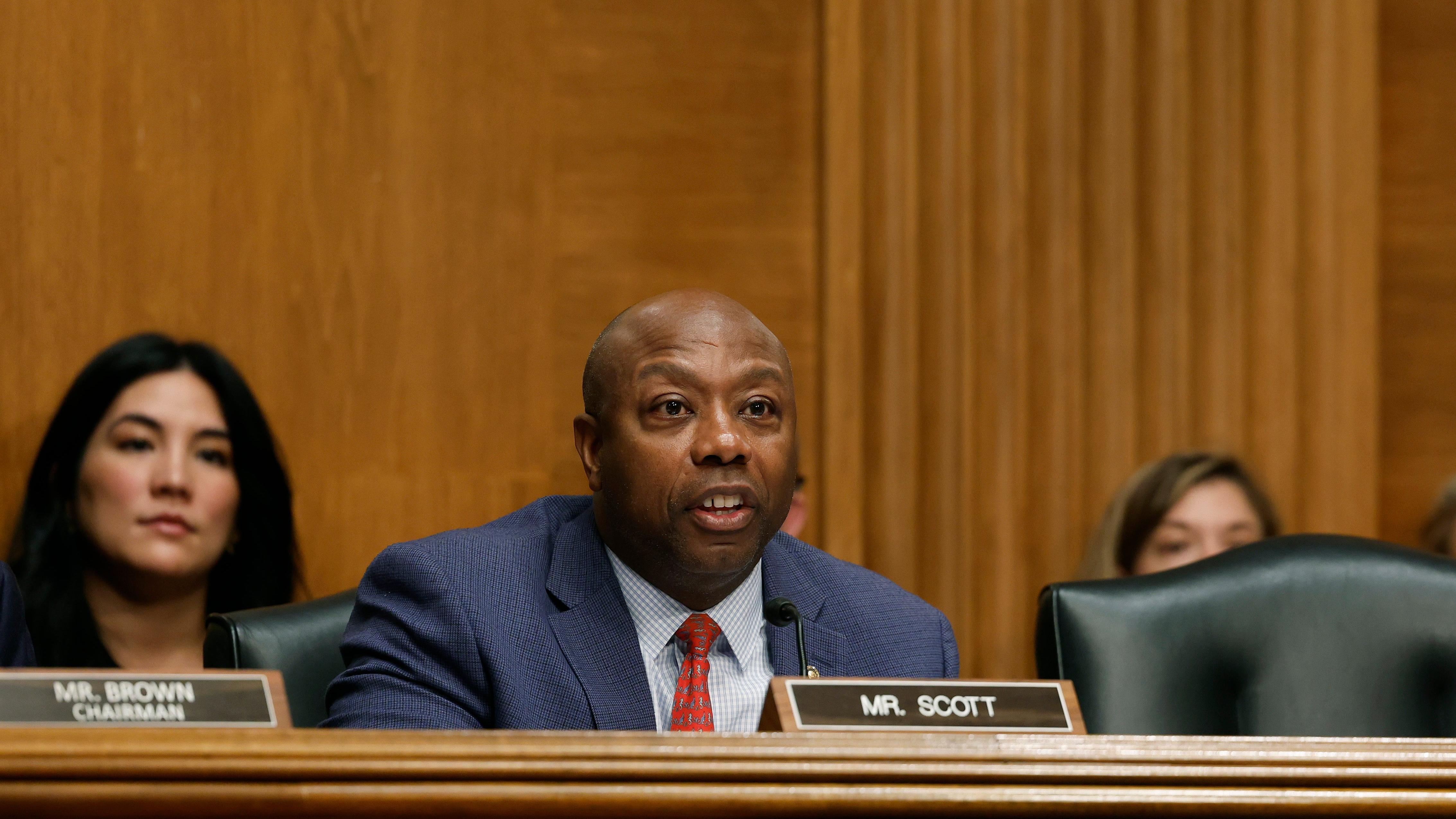"You Strike, You're Fired": United Auto Workers File Complaint Against Sen. Tim Scott
The Senator's words don't seem to play nice with the NLRA's right to strike
The United Auto Workers' historic strike against the Big Three seems to have broken some folks' brains. The majority of Americans are in favor of the strike, but those with something to lose — CEOs, news outlets, even the richest man in the world — have all shared some less-than-supportive opinions. Now, it seems senators are joining in, with the wildest takes yet.
While out at a campaign stop earlier this week, South Carolina senator Tim Scott laid out a plan for striking workers: "You strike, you're fired. Simple concept to me." Scott appears to have forgotten that the right to strike is enshrined in the National Labor Relations Act, so the UAW decided to give him a helpful reminder — in the form of a formal complaint to the National Labor Relations Board.
The UAW hasn't been directly affected by Scott's words — he doesn't have the power to fire auto workers — but the union doesn't need to have been harmed to put in a complaint. The filing alleges that Scott's statement could be seen by his own campaign employees as a threat against striking, which could dissuade them from using that federally protected right. The Intercept asked a labor law professor what the likely repercussions from this complain would be, and got this back:
Scott's comments appear to violate those laws, said Benjamin Sachs, a professor of labor law at Harvard University. "A statement as direct as 'if you strike your fired' is textbook unfair labor practice language because workers can't be fired for striking," Sachs told The Intercept. "If a reasonable employee could interpret the statement as 'if I strike, I'm fired,' then it is without a doubt an unfair labor practice violation."
The UAW may not have skin in the game directly, but the past year has shown us all how labor action in one industry begets labor action in others. By standing up for the right to strike in one area, the auto workers stand up for it everywhere.
